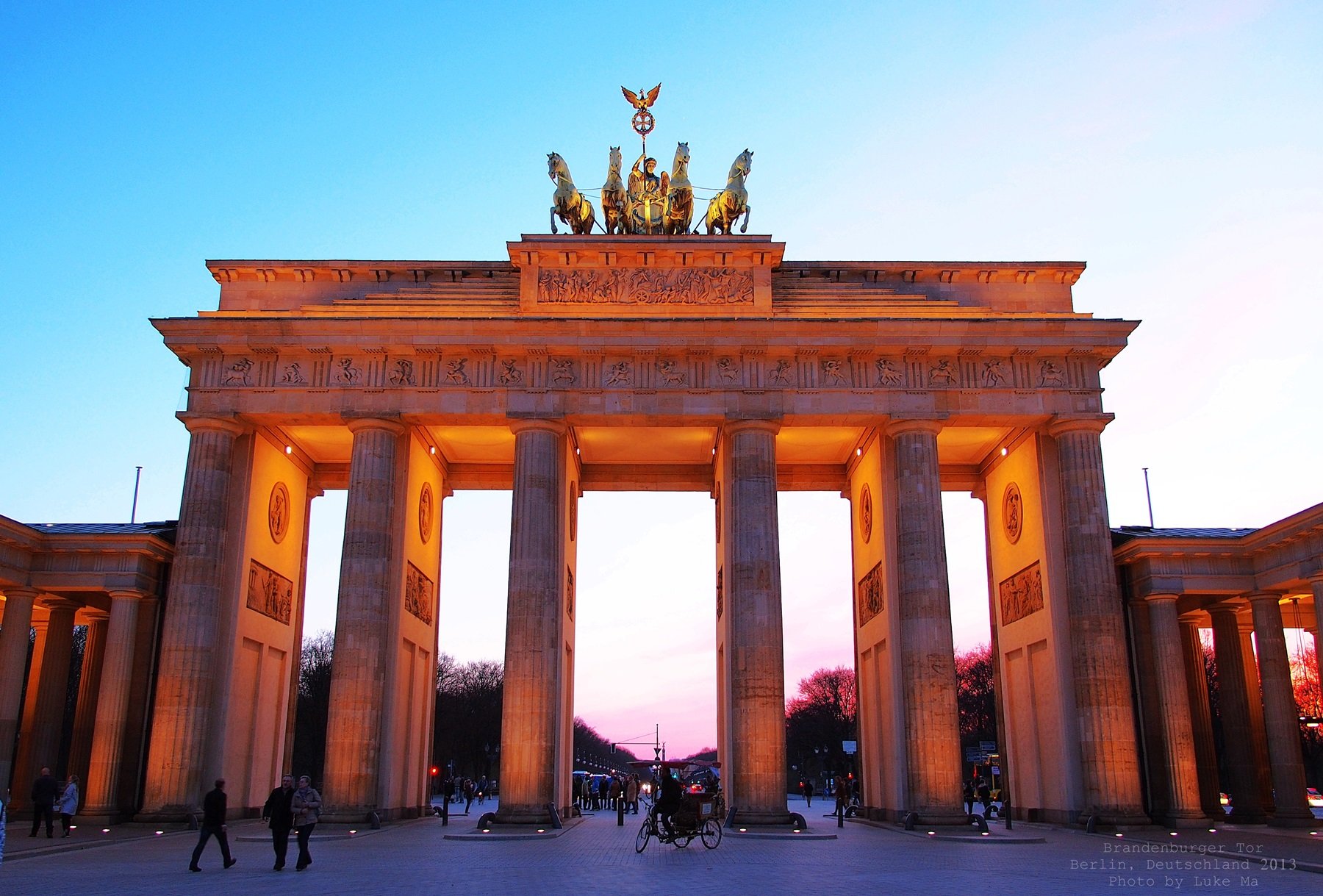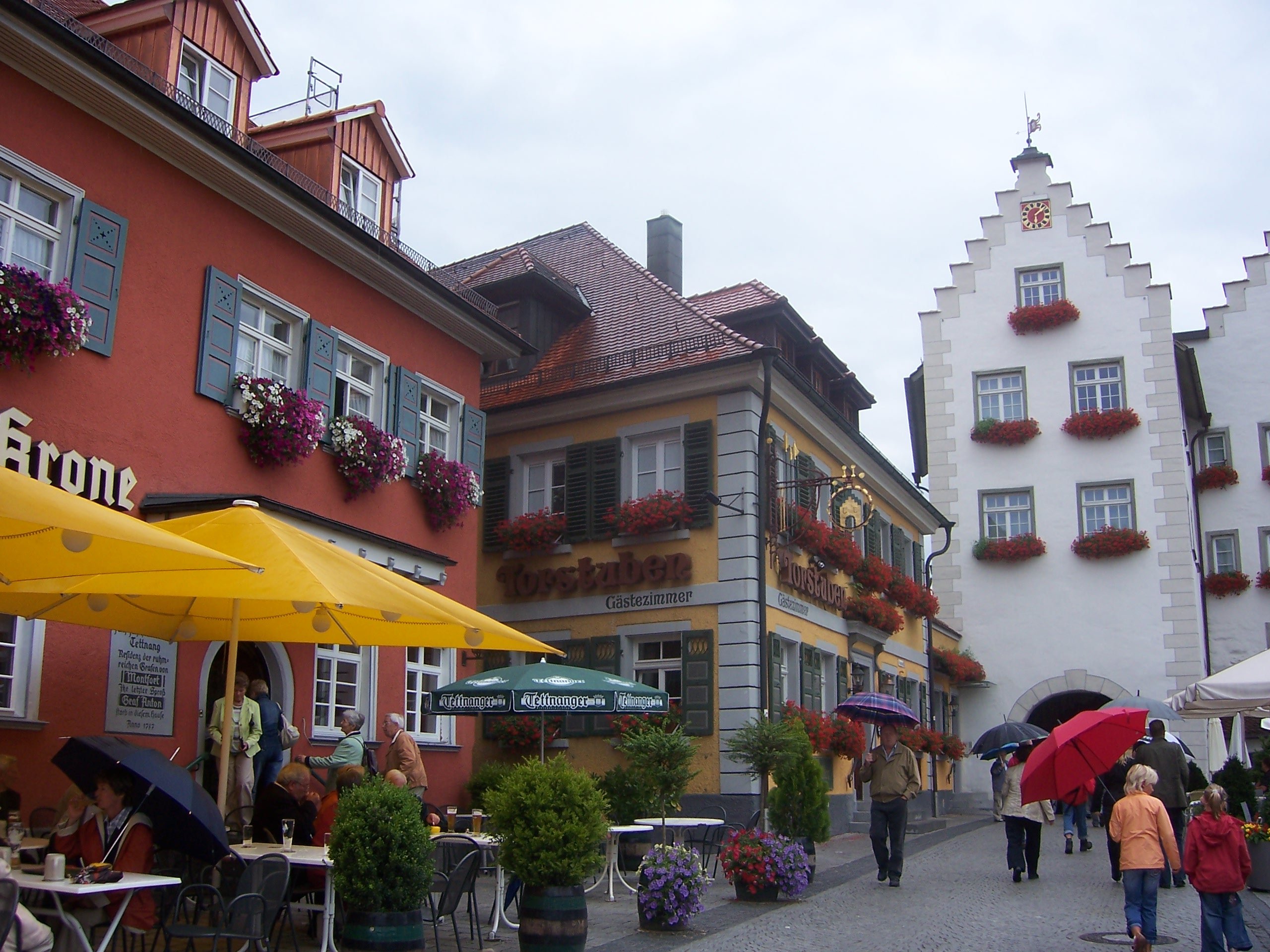10 Helpful Phrases for Tourists in Germany
Germany is one of the most beautiful counties I’ve ever had the pleasure to visit. Within one city you can find the most amazing mixture of new and old architecture, museums devoted to some of the darkest periods of history, light-hearted coffee houses, and street entertainers mixed in with underground pubs. If you find yourself with wanderlust and want to roam the beautiful cobble-stone streets in Germany, here are ten phrases that may come in handy.
Table of Contents
Photo by Luke Ma
Start learning German with a qualified native teacher.
1. Guten Morgen, Guten Tag, Guten Abend
Meaning: “Good morning,” “Good day” (essentially good at any point in the day) and “Good evening/night”. These can be used when walking into a shop, meeting someone on the street or as a polite preface to anything you might say next (especially to a stranger). Standard greetings go far when it comes to making a polite impression on the locals.
2. Ein Radler, bitte
Meaning: A shandy, please. In a country known for beer and wine, a Radler is a nice summery alternative. It is essentially beer and lemonade (or lemon-lime soda) mixed together, though you can choose the type of beer you’d like.
3. Wie spät ist es?
Meaning: What time is it? In a country that runs on a precise schedule, this is an excellent question to know. It sounds like “Vee spate ist es.” Another good tip is to be a few minutes early for all buses and trains. I speak from experience!
4. Tschüss!
Meaning: Bye! See ya! An informal way of saying goodbye it’s one of the smallest strange-looking German words I’ve come across. It sounds a bit like ‘shoes’ but with a ‘ch’ sound at the beginning and extra emphasis on the ‘s’.
5. Entschuldigung
Meaning: Excuse me (said when trying to get past someone, for example in a crowded subway. Pronounced “en-shool-di-goung” and usually muttered quite quickly, this will also make you come across as polite, and not noticeably a tourist if used correctly. Also incredibly handy to alert people to your need to get off a bus, or get past them in the supermarket.
6. Ich verstehe nicht. Sprechen Sie Englisch?
Meaning: I don’t understand. Do you speak English? Think of it as Eeh (with the h sound almost like you’re breathing it out) ferschteha neeht. Spreken Zee Anglish. Most Germans do speak English and may speak directly to you in English despite your attempts to speak to them in German. Don’t be offended if this happens, though asking someone if they speak English in German may earn you a bright smile along with an English response.
7. Das ist mir egal
Meaning: I don’t care or it doesn’t matter to me. You can use this phrase when asked to choose between any options if you have no preference. You may also hear Das ist mir Wurst, which has the same meaning, though idiomatically refers to sausages.
8. Haben Sie einen Regenschrim?
Meaning: Do you have an umbrella? Summer weather in Germany is unpredictable and scattered showers, often completely unforeseen are the norm. Always bring an umbrella with you, wherever you go, though if you forget it this handy phrase should help you out!
9. Ohne Kohlensäure
Meaning: Without carbonation. For pronunciation, think “Ohna Kolenzoirah.” When ordering water at a restaurant (or in any shop) in Germany, you will be automatically served carbonated water. This is not always what you’re expecting or what you want, so make sure to ask for still water, or simply respond with “Ohne” (“Without”) if given an option when buying water.
10. Klingt gut
Meaning: Sounds good. You can use this the same way you would use the phrase in English, or whenever you’d like to agree with something. Something you should always say if asked if you would like a Radler or any kind of schnitzel!
Start learning German with a qualified native teacher.




